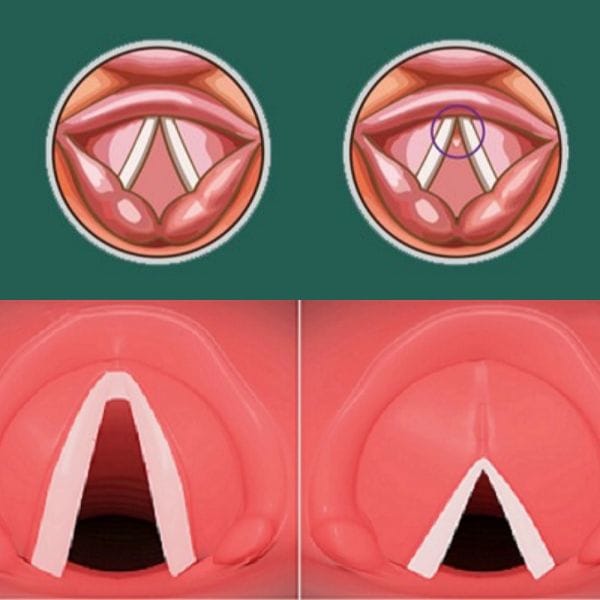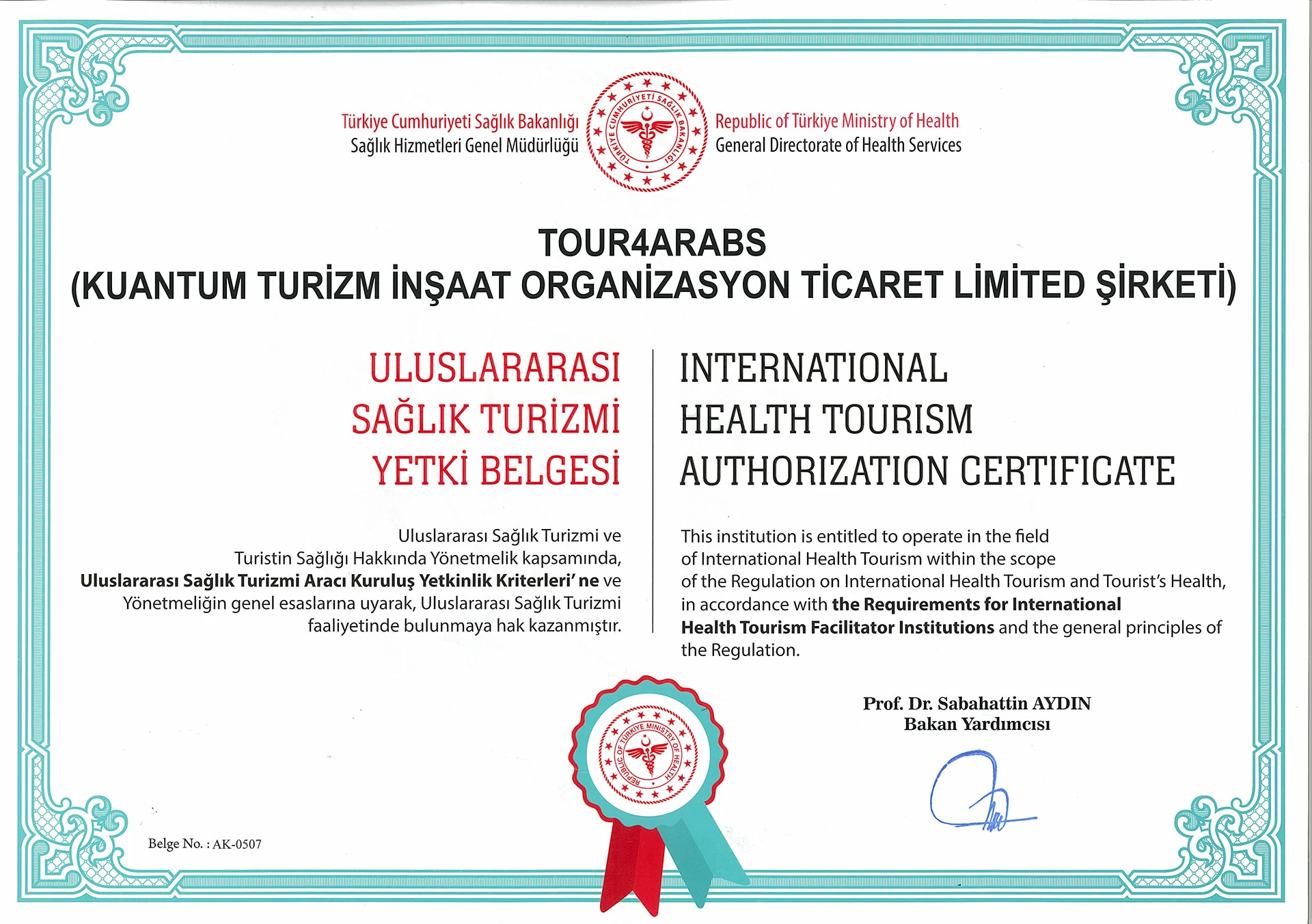What is Voice Aesthetics?
Our voice is our most important instrument in communication. It is also one of the most important factors that play a role in determining our position in society. The individual’s voice is expected to be compatible with his gender, age and physical appearance. Otherwise, situations can undoubtedly create problems in the individual’s perception in society. For example, a man with a thin voice or a woman with a deep voice may encounter wrong evaluations during communication in society. The set of procedures performed for the treatment of such voice disorders, especially for the perception of thinness and thickness of the voice, is called voice aesthetics.
To Whom is Voice Aesthetics Applied?
All individuals in society want to have a beautiful and impressive voice. This desire actually makes every individual a potential candidate for Voice Aesthetics Treatment. However, people who contact us for Voice Aesthetic Surgery are generally individuals who have problems in their social lives due to the thickness or thinness of their voices.
Among the people to whom Voice Aesthetics treatment is most frequently applied are;
- Women with relatively deeper voices,
- Men whose voice is thinner than normal,
- Individuals whose voice and physical structure are not compatible due to the hormonal drugs used during childhood,
- Individuals whose voice is thin or thick due to various problems in their vocal cords,
- People who prefer gender change and therefore desire to adjust their tone of voice,
can be shown.
What are Voice Aesthetics Applications?
Voice aesthetics covers all practices performed to adapt a person’s voice to their gender and social and professional life.
These applications; It enables people to have an impressive voice and thus achieve many social and psychological gains, and the needs of the individual are taken into consideration.
Refining the voice and increasing (thinning) the voice frequency by surgical or non-surgical methods is called voice feminization.
Voice therapy is often applied before or after surgery. A speech-language pathologist can help adjust the pitch of your voice. Many congenital or acquired conditions in male and female-to-male transgender individuals may cause their voice tone to remain thin compared to their general structure. In such cases, voice deepening surgeries offer the most permanent, successful and safe solutions for people experiencing this problem.
Voice deepening surgery is a treatment method applied to people whose voice tone is incompatible with their physical characteristics, gender, age, personality and position in society, and whose voice is thin compared to their general body structure.
These sound aesthetic applications can be listed as follows;
- Voice Refining (Feminization) and Voice Deepening (Masculinization)
- Voice Therapy
- Other Phonosurgeries
What is Voice Refinement (Feminization)? How to Do it?
Individuals who want to lower their voice in accordance with their general physical appearance or gender can undergo voice thinning surgery.
For voice thinning surgery, it is first determined whether the patient is suitable for surgery. Voice thinning surgery involves procedures performed on the vocal cords to make the voice thinner and more feminine by increasing the frequency of the vocal cords. There are different techniques used in voice thinning surgery.
These techniques can be listed as follows:
-
Wendler Thyroplasty (Anterior Commissure Glottoplasty):
It is the most commonly applied intervention in voice thinning. This procedure takes place under general anesthesia and is performed by interfering with the vocal cords through the mouth. The front part of the vocal cords is stitched together to shorten the length of the vocal cords. Thanks to the shortened vocal cords, a higher pitched voice is produced.
-
Laser Thinning (Laser Assisted Reduction Glottoplasty):
This method, performed under general anesthesia, involves intervening in the vocal cords with a laser from inside the mouth. With the help of laser, the mass of the vocal cords is reduced. As the mass of the vocal cords decreases, the voice becomes thinner.
-
Thyroplasty Type 4 (Cricothyroid Approximation):
It is a technique used in addition to other methods in voice thinning and is also known as the cricothyroid approach. The cartilages in the larynx are accessed through a small incision made in the front of the neck. Afterwards, these cartilages are brought closer and further apart and the vocal cords are stretched to make the voice thinner. During this procedure, which is performed under local anesthesia, it will be possible for the patient to hear his own voice during the surgery.
What is Voice Deepening (Masculinization)? How To?
Individuals whose voice does not match their physical appearance or gender can undergo voice deepening surgery to make their voice deeper. Voice deepening surgery is a method preferred by men who are psychologically affected because they usually have a thin voice. The aim of voice deepening surgery is to deepen the voice by reducing the frequency of the vocal cords. Methods used to deepen the voice can be listed as follows:
-
Thyroplasty Type 3:
This method, which is widely used to deepen the voice, is also called voice deepening surgery. In this method, which is performed under local anesthesia, a small incision is first made on the front of the neck. The vocal cords are reached through this incision and the vocal cords are loosened. As a result of the loosened vocal cords, the voice becomes deeper.
During the procedure, the patient can decide the tone he wants by hearing his own voice. After the procedure, which is generally painless, the patient can be discharged on the same day if there is no risk.
What are the General Risks of Voice Aesthetic Surgeries?
As with every surgical procedure, voice aesthetic surgery also has some risks.
Briefly, it can be listed as follows;
- Dysphonia (difficulty in speaking), interruption or tremor of the voice
- Edema (fluid accumulation in your vocal cords)
- Enlarged Adam’s apple
- Hoarseness
- Frequency does not change (sound remains very thin or thick)
- Scarring inside or outside the larynx.
- Too much frequency increase or decrease
- Decreased vocal cord function
- Vocal cord lesions (abnormal growths or protrusions on your vocal cords).
- Vocal cord paralysis is among the risks.
Voice Hygiene
Protecting our voice from all kinds of negative factors is called “Voice Hygiene”. Voice hygiene is especially important for people who use their voices professionally.
How to Provide Voice Hygiene?
To ensure vocal hygiene, you should:
- Do not talk loudly, shout or scream.
- Instead of coughing to clear your throat, sniff and swallow or drink water.
- Do not make long phone calls.
- Rest your voice by taking a 5-minute speaking break every hour during the day.
- Avoid frequent and violent throat clearing and coughing.
- Be careful not to talk in noisy, dusty and smoky places.
- Sleep for sufficient time and try to avoid insomnia and excessive stress.
- Make sure the air in your environment is as humid as possible.
- Try to drink at least 8 glasses of water a day.
- Smoking is one of the factors that most negatively affects vocal hygiene.
- To prevent reflux, do not go to bed on a full stomach. Try to sleep with the head of your bed elevated (double pillows).
- Avoid excessively fatty foods.
- Do not use aspirin and blood thinners unless necessary.
- Do not use medications that affect your mood (anti-depressants) unless necessary. These medications affect the control of your voice and may cause dryness in the vocal cords.
- Antihistamine and pseudoephedrine-containing drugs used in case of cold and flu may cause dryness in your vocal cords.
- Do not use diuretics unless necessary. These medications can also cause dryness in the vocal cords.
- Hormone-acting drugs (eg birth control pills) can cause voice changes.
Diseases that cause nasal congestion (Nasal Allergy, Septum Deviation, Sinusitis, Adenoids and Nasal Polyps) may have negative effects on your voice, and these diseases must be treated.
Frequently Asked Questions
Is There Voice Enhancement Surgery?
Yes, in some cases, voice enhancement surgeries can be performed, but the purpose and method of the surgery is specific to the individual.
Which Doctor Performs Vocal Cord Surgery?
Vocal cord surgeries are usually performed by an ear, nose and throat specialist (ENT) or phoniatrist.
Is There Pain After Voice Change Surgery?
Temporary mild pain may occur after voice change surgery.
Can Voice Change Be Made During Gender Reassignment Surgery?
Yes, voice aesthetics can also be performed within gender change operations. In order to achieve the appropriate voice tone for the changed gender, changes can be made on the vocal cords by entering through the mouth.






